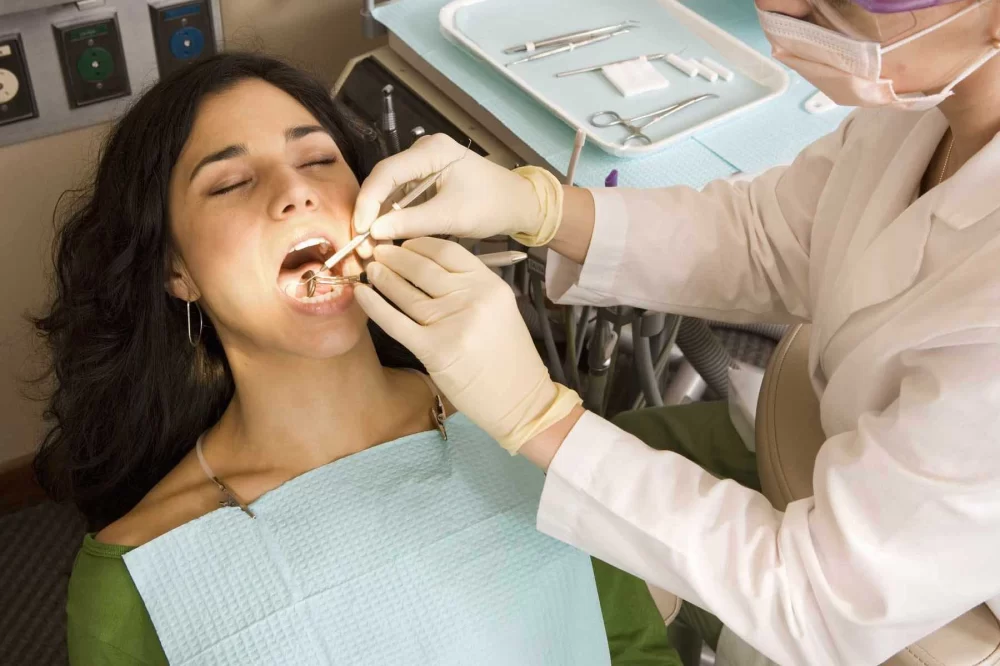
Can a Dentist Put You to Sleep? Exploring Sedation Options for Dental Procedures
If you’ve ever experienced anxiety or fear before a dental appointment, you're not alone. Many people feel nervous at the thought of dental procedures, and it can sometimes prevent them from seeking the care they need. Over the years, I’ve learned that a common question many patients ask is whether a dentist can actually put them to sleep during their visit. As someone who’s had my fair share of dental work, I can relate to that curiosity. The answer is yes, but there are specific sedation options that a dentist can offer, and understanding how they work is essential for making an informed decision.
1. Understanding Dental Sedation
Before diving into the specifics of being "put to sleep," it’s helpful to understand the different types of sedation available in dentistry. Sedation in dental practices is used to help patients relax, alleviate pain, and, in some cases, put them into a state of sleep during certain procedures. Over time, advancements in sedation techniques have made it easier for patients like me to undergo various dental treatments without the discomfort or stress often associated with visits to the dentist.
There are primarily four types of sedation used in dentistry:
- Local Anesthesia: This is the most common form of sedation and is typically used for minor procedures, such as fillings and cleanings. It involves numbing the area around the tooth being treated, ensuring that you don’t feel pain, but you remain fully conscious.
- Oral Sedation: Oral sedation involves taking a pill or liquid before your appointment to help you relax. While it doesn't put you to sleep, it can make you feel drowsy or slightly “out of it,” so you’re less aware of the procedure happening. I’ve used this option during some of my dental visits, and while I didn’t fall asleep, I definitely felt calm and relaxed.
- IV Sedation: This type of sedation is administered through an intravenous line, and it works quickly to induce deep relaxation. While you're not fully asleep, you’ll likely be in a deeply relaxed state, and time may seem to fly by during the procedure.
- General Anesthesia: This is the option where the dentist can actually put you to sleep. General anesthesia renders you unconscious for the duration of the procedure, ensuring that you don’t feel anything. It’s typically reserved for more complex procedures, such as wisdom tooth extraction or oral surgeries, where deep sedation is needed for patient comfort and safety.
2. When Would a Dentist Use General Anesthesia?
Now that we understand the various types of sedation, let’s focus on general anesthesia, which is the one that actually puts you to sleep. General anesthesia is not commonly used for routine dental work, but it can be a good option for patients undergoing more invasive procedures or for those who have severe anxiety about dental visits.
In my experience, I’ve learned that general anesthesia is typically used for procedures like:
- Complex oral surgery: Procedures like jaw surgery, extensive dental implants, or tumor removal in the mouth may require general anesthesia to ensure the patient remains unconscious and comfortable throughout the process.
- Wisdom tooth extraction: Many people, including myself, opt for general anesthesia when having wisdom teeth removed, as it can be an involved procedure, and sedation helps make the experience much more manageable.
- Dental phobia: For patients with extreme dental anxiety or fear, general anesthesia can be an option to eliminate stress and prevent panic attacks during treatment. I once had a friend who had such a strong fear of the dentist that general anesthesia was the best choice for a routine procedure.
- Multiple tooth extractions or root canals: If a dentist needs to perform several extractions or a root canal on multiple teeth, general anesthesia can be used to ensure the patient stays asleep and experiences no discomfort.
3. How Does General Anesthesia Work in Dentistry?
When a dentist administers general anesthesia, it’s typically done by a specialist anesthesiologist or a dental professional trained in sedation techniques. The procedure begins with the administration of medications through an IV line, which induces unconsciousness. These medications are carefully monitored and adjusted by the dentist or anesthesiologist to ensure your safety and comfort.
Once you're asleep, the dentist can proceed with the treatment without the patient feeling any pain or stress. The duration of the sedation varies depending on the complexity of the procedure. Afterward, you will be carefully monitored until the effects of the anesthesia wear off, and you can gradually wake up. I’ve had friends who underwent general anesthesia for dental work, and they said they woke up feeling groggy but had no memory of the procedure itself, which is great for those who have severe dental anxiety.
4. What Are the Risks of General Anesthesia in Dentistry?
While general anesthesia can be an excellent option for certain patients, it’s not without risks. As someone who’s always been cautious about medical procedures, I made sure to ask my dentist about the risks before agreeing to any treatment involving anesthesia. Some of the risks include:
- Allergic reactions: Although rare, some people can have an allergic reaction to the medications used in general anesthesia.
- Breathing difficulties: As the body’s respiratory system is affected by general anesthesia, patients are closely monitored to ensure they breathe properly during the procedure.
- Post-sedation grogginess: After waking up from general anesthesia, it’s common to feel groggy or disoriented for a few hours. I’ve personally noticed a lingering effect for several hours after undergoing a procedure involving anesthesia.
- Possible nausea: Some people experience nausea or vomiting after the effects of anesthesia wear off, but this can often be alleviated with medication.
5. Is General Anesthesia Right for You?
As I reflect on my own dental experiences, I realize that the decision to use general anesthesia should be carefully considered. For many people, it’s the perfect solution, especially if they have severe anxiety or need a complex procedure. However, it’s essential to have a detailed discussion with your dentist about your medical history, your comfort level, and the specific procedure you’ll be undergoing. Together, you can determine if general anesthesia is the best option for your treatment plan.
In my case, I’ve always felt comfortable with local anaesthesia for most procedures, but I’ve known others who opted for general anesthesia when facing more extensive surgeries. If you're considering it, make sure to ask about the safety measures, recovery process, and any possible side effects or concerns you should be aware of.







 Dr. Adriana Galvan de Barbosa, DDS4.0 (13 review)
Dr. Adriana Galvan de Barbosa, DDS4.0 (13 review) Dr. Scott K. Smith, DDS4.0 (83 review)
Dr. Scott K. Smith, DDS4.0 (83 review) Kid's Dental4.0 (280 review)
Kid's Dental4.0 (280 review) Drs. Allen and Brian Shapiro4.0 (6 review)
Drs. Allen and Brian Shapiro4.0 (6 review) Little Grins Dental4.0 (79 review)
Little Grins Dental4.0 (79 review) Rapid City Dental Clinic4.0 (90 review)
Rapid City Dental Clinic4.0 (90 review) The Importance of Oral Health Education During Pregnancy for a Healthy Pregnancy
The Importance of Oral Health Education During Pregnancy for a Healthy Pregnancy Best Tips for Brushing Your Teeth Properly for Healthy Gums: Essential Techniques for Oral Health
Best Tips for Brushing Your Teeth Properly for Healthy Gums: Essential Techniques for Oral Health Why Skipping Dental Checkups Can Lead to Bigger Oral Health Problems
Why Skipping Dental Checkups Can Lead to Bigger Oral Health Problems Advantages of Porcelain Dental Restorations
Advantages of Porcelain Dental Restorations How Can Diabetes Cause Tooth and Gum Problems? Preventing and Managing Oral Health Issues
How Can Diabetes Cause Tooth and Gum Problems? Preventing and Managing Oral Health Issues Healthy Habits for Promoting Good Oral Health and Hygiene: Tips for a Healthy Smile
Healthy Habits for Promoting Good Oral Health and Hygiene: Tips for a Healthy Smile